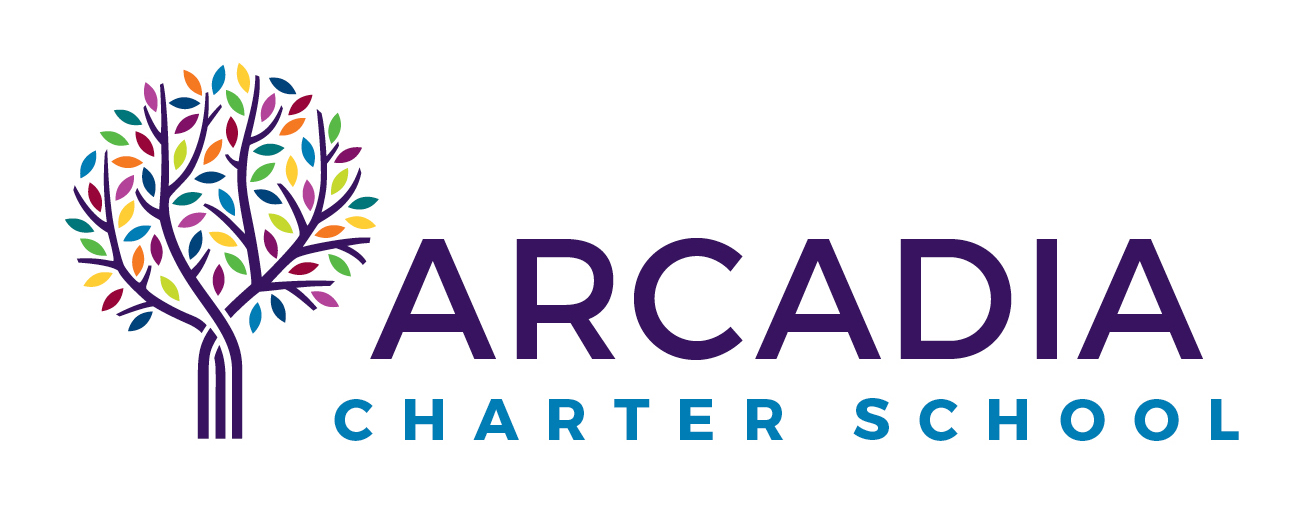Arcadia This Week 1/3/2021
Hello, Arcadia families,
Happy New Year!! I hope you all had a wonderful winter break!
Monday, 1/4: Day 1
Tuesday, 1/5: Day 2
Wednesday, 1/6: Day 3
Thursday, 1/7: Day 4
Friday, 1/8: Day 5--Asynchronous Day
- For the asynchronous day, just a reminder to students that each class will have a brief assignment that you need to complete to be counted as “present” for attendance.
- For support, the paraprofessional staff will be available! Links to their meets are available at the bottom of the MS and HS schedules
Updated Schedule for January/February
January 4-29: Distance learning
January 8: Asynchronous Day
January 15: Asynchronous Day
February 1: Return to hybrid, if the case rate allows**
**The Governor’s most recent order reiterated that secondary schools should follow the original guidelines and collaborate with their Regional Support Team to make learning model decisions. The current case rate on the Rice County website is 76.48/10,000. We would need the case rate to be below 30/10,000 in a two week period to return to hybrid and below 10/10,000 to move to all face to face. (Precautions like face masks, distancing, and handwashing will remain in place in any model.)
Planning days would take place the week of 1/25-1/29 with a return to the hybrid model on 2/1.
Announcements
Learning Model Choice Form (Due 1/15/2021)
Please fill out this form to let us know what learning model you would prefer for 3rd quarter (assuming we are able to go back to hybrid). We anticipate that a large number of students will continue in distance learning--at the beginning of the year, over 60% of Arcadia’s students chose distance learning--but we want to make sure that anyone who would like to be in the building is able to be there.
Here is the direct link to the form: https://forms.gle/Gd3GQrfu2PWwAuwq8
Attendance Form
Please report attendance-related information (appointments, illness) through our website, even during distance learning! Go to “Current Families” and then “ Report an Absence.” You can fill out as much as is relevant. If your child is ill, please make sure to report symptoms, as we are required to track a lot of information on illness this year! If you’d rather just save a link to the form somewhere accessible to you, here is a link to the form.
Mission Spotlight
In an effort to continually move the school toward our mission, I have previously included a “mission spotlight” with information about Arcadia’s educational model, or with an example of a way that we are striving to fulfill our mission. During this year, with the constant stream of information about COVID-19 and its impact on every aspect of how our students experience school, I left this out to streamline the newsletter, sharing only the most immediately pertinent information.
However, I’ve decided to bring it back for the new year, focusing on the big ideas that frame our mission. To start, I am going to address the concept of “progressive education.” Arcadia embraces its identity as a progressive school, but what does that mean? (I should note that “progressive” in this context does not refer to the politicized version of the term, but instead to a specific educational tradition.) The following is an excerpt from an article by Alfie Kohn called, “Progressive Education: Why It’s Hard to Beat, but Also Hard to Find.” I will include sections of this article over the coming weeks.
If progressive education doesn’t lend itself to a single fixed definition, that seems fitting in light of its reputation for resisting conformity and standardization. Any two educators who describe themselves as sympathetic to this tradition may well see it differently, or at least disagree about which features are the most important.
Talk to enough progressive educators, in fact, and you’ll begin to notice certain paradoxes: Some people focus on the unique needs of individual students, while others invoke the importance of a community of learners; some describe learning as a process, more journey than destination, while others believe that tasks should result in authentic products that can be shared.[1]
What It Is
Despite such variations, there are enough elements on which most of us can agree so that a common core of progressive education emerges, however hazily. And it really does make sense to call it a tradition, as I did a moment ago. Ironically, what we usually call “traditional” education, in contrast to the progressive approach, has less claim to that adjective — because of how, and how recently, it has developed. As Jim Nehring at the University of Massachusetts at Lowell observed, “Progressive schools are the legacy of a long and proud tradition of thoughtful school practice stretching back for centuries” — including hands-on learning, multiage classrooms, and mentor-apprentice relationships — while what we generally refer to as traditional schooling “is largely the result of outdated policy changes that have calcified into conventions.”
It’s not all or nothing, to be sure. I don’t think I’ve ever seen a school — even one with scripted instruction, uniforms, and rows of desks bolted to the floor — that has completely escaped the influence of progressive ideas. Nor have I seen a school that’s progressive in every detail. Still, schools can be characterized according to how closely they reflect a commitment to values such as these:
Attending to the whole child: Progressive educators are concerned with helping children become not only good learners but also good people. Schooling isn’t seen as being about just academics, nor is intellectual growth limited to verbal and mathematical proficiencies.
Community: Learning isn’t something that happens to individual children — separate selves at separate desks. Children learn with and from one another in a caring community, and that’s true of moral as well as academic learning. Interdependence counts at least as much as independence, so it follows that practices that pit students against one another in some kind of competition, thereby undermining a feeling of community, are deliberately avoided.
Collaboration: Progressive schools are characterized by what I like to call a “working with” rather than a “doing to” model. In place of rewards for complying with the adults’ expectations, or punitive consequences for failing to do so, there’s more of an emphasis on collaborative problem-solving — and, for that matter, less focus on behaviors than on underlying motives, values, and reasons.
Social justice: A sense of community and responsibility for others isn’t confined to the classroom; indeed, students are helped to locate themselves in widening circles of care that extend beyond self, beyond friends, beyond their own ethnic group, and beyond their own country. Opportunities are offered not only to learn about, but also to put into action, a commitment to diversity and to improving the lives of others.
Intrinsic motivation: When considering (or reconsidering) educational policies and practices, the first question that progressive educators are likely to ask is, “What’s the effect on students’ interest in learning, their desire to continue reading, thinking, and questioning?” This deceptively simple test helps to determine what students will and won’t be asked to do. Thus, conventional practices, including homework, grades, and tests, prove difficult to justify for anyone who is serious about promoting long-term dispositions rather than just improving short-term skills.
Deep understanding: As the philosopher Alfred North Whitehead declared long ago, “A merely well-informed man is the most useless bore on God’s earth.” Facts and skills do matter, but only in a context and for a purpose. That’s why progressive education tends to be organized around problems, projects, and questions — rather than around lists of facts, skills, and separate disciplines. The teaching is typically interdisciplinary, the assessment rarely focuses on rote memorization, and excellence isn’t confused with “rigor.” The point is not merely to challenge students — after all, harder is not necessarily better — but to invite them to think deeply about issues that matter and help them understand ideas from the inside out.
Active learning: In progressive schools, students play a vital role in helping to design the curriculum, formulate the questions, seek out (and create) answers, think through possibilities, and evaluate how successful they — and their teachers — have been. Their active participation in every stage of the process is consistent with the overwhelming consensus of experts that learning is a matter of constructing ideas rather than passively absorbing information or practicing skills.
Taking kids seriously: In traditional schooling, as John Dewey once remarked, “the center of gravity is outside the child”: he or she is expected to adjust to the school’s rules and curriculum. Progressive educators take their cue from the children — and are particularly attentive to differences among them. (Each student is unique, so a single set of policies, expectations, or assignments would be as counterproductive as it was disrespectful.) The curriculum isn’t just based on interest, but on these children’s interests. Naturally, teachers will have broadly conceived themes and objectives in mind, but they don’t just design a course of study for their students; they design it with them, and they welcome unexpected detours. One fourth-grade teacher’s curriculum, therefore, won’t be the same as that of the teacher next door, nor will her curriculum be the same this year as it was for the children she taught last year. It’s not enough to offer elaborate thematic units prefabricated by the adults. And progressive educators realize that the students must help to formulate not only the course of study but also the outcomes or standards that inform those lessons.
Some of the features that I’ve listed here will seem objectionable, or at least unsettling, to educators at more traditional schools, while others will be surprisingly familiar and may even echo sentiments that they, themselves, have expressed. But progressive educators don’t merely say they endorse ideas like “love of learning” or “a sense of community.” They’re willing to put these values into practice even if doing so requires them to up-end traditions. They may eliminate homework altogether if it’s clear that students view after-school assignments as something to be gotten over with as soon as possible. They will question things like honors classes and awards assemblies that clearly undermine a sense of community. Progressive schools, in short, follow their core values — bolstered by research and experience — wherever they lead.
Upcoming Events
Jan. 4-29: School resumes and continues in distance learning
Jan. 8 and Jan. 15: Asynchronous Days
Jan. 19, 6:30PM: Arcadia School Board Meeting
Online at: https://meet.google.com/tmk-nfcx-szi
Otherwise, to join by phone, dial +1 513-796-6467 and enter this PIN: 493 475 105#
Jan. 22: End of 2nd Quarter
Sincerely,


